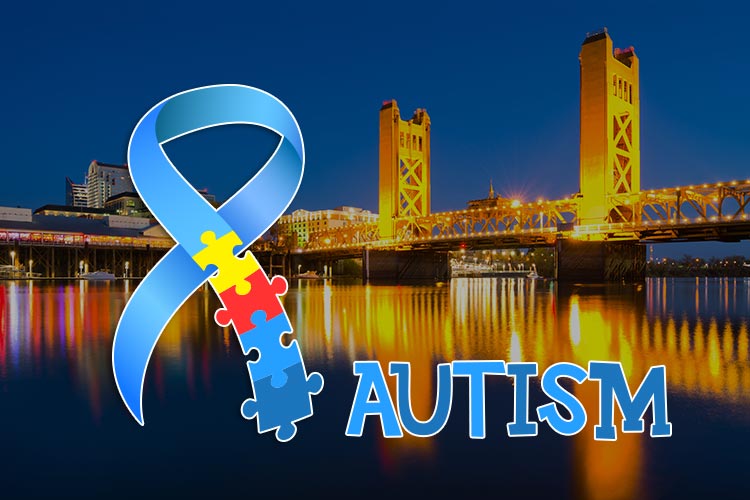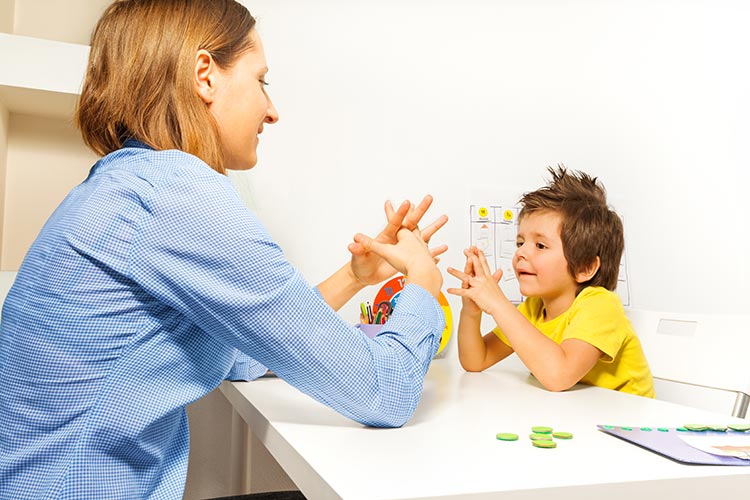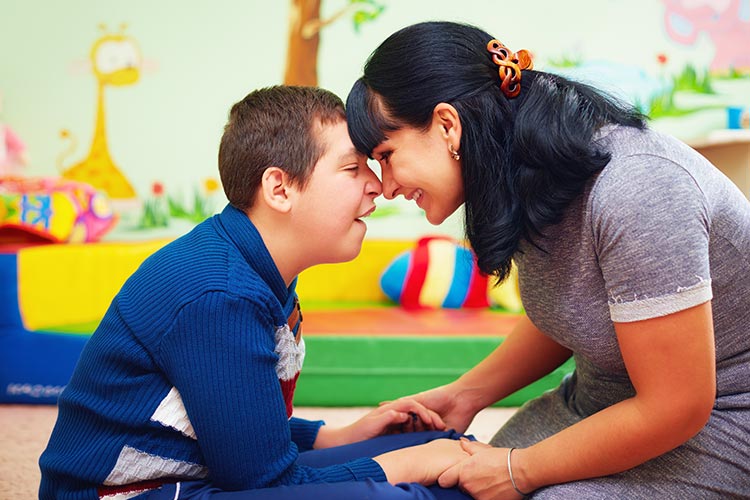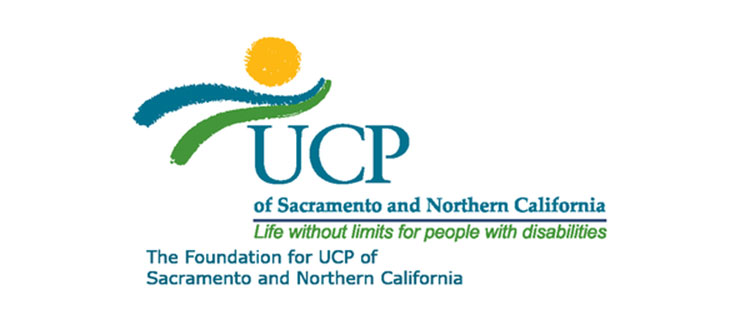


Do you have someone in your family who has been diagnosed with autism (ASD) or Asperger Syndrome (AS)? Are you looking for autism resources for families in or around the Sacramento area? Perhaps you are considering moving to Sacramento or its suburbs and need to get acquainted with autism resources in the area. If you or someone you know is looking for resources related to autism and/or Asperger Syndrome in the Sacramento region, this article can help you get started.
Also, this is not a comprehensive list. It is intended to help parents or caregivers connect with some resources related to autism or Asperger Syndrome.
ACRC is a private, non-profit corporation that provides services and resources related to autism or Asperger Syndrome to individuals age 3 and above with developmental disabilities. They also provide services to infants up to 36 months who have a need for early intervention and meet the eligibility criteria for the California Early Start program.
Services provided by ACRC are determined after a person is assessed and found eligible. An assigned Service Coordinator meets with the family to discuss goals and formulate an Individual Program Plan (IPP). The ACRC will only pay for services or supports if other resources such as private insurance or community resources have been exhausted.
More autism resources for families in Sacramento feature in the works for Regional Center clients is the Self-Determination Program. The aim of the SDP is to institute a new way of receiving services. Meetings of the SDP Advisory Committee have been underway with a goal to roll out the program when the CA Department of Developmental Services has an approved waiver.

Many families research autism and stumble upon ABA therapy. Applied Behavior Analysis is an approach to understanding behavior and helping individuals acquire skills. It focuses on the principles that explain how learning takes place.
Techniques are employed by behavior analysts to increase useful behaviors and reduce those that interfere with learning. Strategies can be used in structured settings including school, the community, and home. It’s generally done 1:1 with the participant and the behavior analyst. ABA is not synonymous with Discrete Trial Training (DTT).
Under the ABA umbrella, DTT is one of several teaching strategies. DTT uses massed trial instruction, repetition, and reinforcers to teach new skills. There’s also Early Intensive Behavioral Intervention (EIBI), Pivotal Response Training (PRT), and Verbal Behavior Intervention (VBI).
In the Sacramento area, there are several agencies that provide autism resources for families, particularly about ABA therapy. A couple of directories for ABA agencies in this area are here and here. If the child with autism is under the age of 3, typically you would contact insurance to discuss options.
If s/he is over 3, generally the school system is the most common source for ABA. There are also private providers and social service agencies that can help. Parents themselves can learn and provide ABA at home, and because they need for BCBAs (Board Certified Behavior Analysts) cannot keep up with the current demand, parents are training themselves through various methods to employ ABA methods at home.
Several resources related to autism or Asperger Syndrome for learning ABA are Autism Web ABA, the Center for Autism Positive Behavior Management, TACA’s In-Home Therapy Program Guide, and I Love ABA.
A very important resources related to autism or Asperger Syndrome is the CalABLE program. California Achieving a Better Life Experience program allows qualified individuals with disabilities and their families to open tax-free savings accounts without the worry of losing government assistance, benefits, or services.
Until recently, special needs individuals have been restricted in the amount of money they can save, which prevents them from planning adequately for the future and puts or keeps them in poverty.
Contributions to a CalABLE account can be made by family, friends, or the beneficiary themselves, and earnings are allowed to accumulate tax-free. The limit for a yearly contribution is $15,000. The savings held in an ABLE account have a $100,000 limit. These savings are not counted against the $2,000 limit on personal assets required by SSI.
The CalABLE Board hopes to launch the program in late spring 2018. Any individual who has the onset of a disability before age 26 may qualify by their eligibility to receive SSI or SSDI or by their disability certification (diagnosis letter signed by a physician).
Also, attention-worthy is the AB2039 providing state tax deductions to individuals who contribute to an ABLE savings account. Letters of support for AB2039 can be sent to Assemblyman Vince Fong, State Capitol, Rm. 4144, Sacramento, CA 94249.

With several offices in Sacramento and other locations in Oakland, Fresno, Los Angeles, and San Diego, Disability Rights California began with a vision of an inclusive, barrier-free world where people with disabilities enjoy equal rights and opportunities.
This advocacy and educational association works for freedom from discrimination, neglect, and abuse, and for the promotion of choice, respect, and inclusion. Those eligible for services include individuals with developmental disabilities, whether they be physically disabled, learning disabled, sensory-based, psychiatric based, and/or emotionally impaired.
It is good to know about Disability Rights CA if you desire legal, civil, or service rights information, technical assistance, training, advocacy support, and/or outreach within the disability communities. The system can help with questions about SSI (Supplemental Security Income), IHSS (In-Home Supportive Services), Medi-Cal, and CCS (California Children’s Services).

Families for Early Autism Treatment, Inc., is a non-profit organization of parents, family members, and professionals designed to help families with children of all ages who have ASD.
They were founded by parents in 1993 who strove for improvements to the early intervention services offered in the Sacramento area. FEAT offers two support meetings: a family autism resource meeting held on the third Wednesday of the month, and a family empowerment forum held four times a year.
FEAT provides treatment information, self-advocacy information, IEP information, and more. They maintain a website, a lending library, and publish a newsletter. Each spring, they host a FEAT walk and carnival.
In a collaboration with the Elk Grove Police Department, the Fly Brave Foundation has created a free, five-week fitness program for kids, teens, and adults with autism and their families. Held at Albiani Middle School, the program features trainers from AMPT Fitness, Freedom Tribe Fitness, and SacTown Running.
They ask that parents/caregivers remain on-site during classes (and can join workouts) and that participants wear appropriate work-out clothing and bring water).
Children with disabilities may be eligible for the In-Home Supportive Services program. The County of Sacramento Board of Supervisors established IHSS Public Authority as part of a continuum to help disabled children and adults remain in their own homes with the support of an in-home caregiver.
This program helps pay for services so eligible children and adults can remain living at home. There are strict qualifications about who may receive IHSS. Basically, a parent is interviewed by a county social worker who determines the child’s need for IHSS. If eligible, the county will authorize a number of hours for services.
You can then hire someone to perform the services or become a provider yourself. There are a few pieces of training involved and timesheets to manage. Overall, it’s worth looking into this program.
The UC Davis Medical Investigation of Neurodevelopmental Disorders Institute was founded in 1998 by families of children with autism. The vision was to have experts from every discipline related to early brain development come together to find and develop treatments for individuals with neurodevelopment disabilities like autism.
Today, the M.I.N.D. Institute conducts various research studies as it is uniquely positioned to take advantage of UC Davis’ biological, toxicological, and environmental sciences programs. Studies range from basic biological studies to treatment trials. Through their website, people can join their Research Volunteer Registry.
The research studies can play a role in understanding, preventing, and treating neurodevelopment disorders. The M.I.N.D. also has an office at their clinic dedicated to autism resources.
New to Fair Oaks, MERISTEM serves young adults on the autism spectrum or those with Asperger Syndrome. Their focus as a learning institution is to prepare students for entry into the workforce or pursuit of higher education. They offer a three-year day and residential program which relies on a modern apprenticeship model.
Considering that students learn in highly individualized ways, MERISTEM guides students to develop contextualized, transferable skills as they transition from school life to work life.
MERISTEM’s method includes students working in agriculture, culinary arts, jewelry and clothing design, digital media, carpentry, animal care, filming, and more. Programs are personalized so each student can become self-reliant and confident.
Their central goal is to prepare students on the spectrum for life after graduation. MERISTEM has a transition-to-work program that develops skills through work experience. Their 13 acres house a campus, a farm, a bookstore, a café, and dormitories.
For more information, please visit their website.

The Rapid Prompting Method (RPM) is a learning system that is designed to help students with communication challenges initiate responses, increase academic abilities, and develop conversational skills.
RPM is a low-tech approach relying on a student, an instructor, paper, and pencils. Created by the mother of a nonverbal boy with autism, RPM strategically matches the speed of a student’s self-stimulatory behavior with the pace of the lesson. The “Teach-Ask” paradigm elicits responses through intensive auditory, verbal, and tactile prompts.
A parent-led RPM group in the Sacramento area meets with a trainer for 1:1 student/teacher sessions as often as feasible. Their Facebook group functions as a place of support and encouragement for parents who wish to learn more about the modality and share information about lessons and resources related to autism or Asperger Syndrome.
The Sacramento Autistic Spectrum and Special Needs Alliance are a non-profit putting forth the effort to ensure the well-being of Sacramento’s mentally diverse youth.
They exist to provide comprehensive assistance to youth and their families in the form of case management, advocacy, recreational events, informational events, and autism resource assistance (financial and material assistance for things like toys, therapeutic materials, and educational supplies).
Dave Gaines, the founder, and CEO has expanded the organization to include fundraising efforts and community outreach.

This website is a great stepping stone when you are searching for autism resources in and around Sacramento. Likewise, it’s helpful if you are considering a move to the region and want to check out or connect with local autism resources.
The site houses community events information, military, and law enforcement support, webinars, school district Community Advisory Committee (CAC) information, and spiritual support. There are books for recommended reading and articles that will touch your heart.
The State Council for Developmental Disabilities has offices throughout the state with a local office on Howe Ave. in Sacramento that serves ten counties. The SCDD, established by state and federal law as an independent state agency, ensures that people with developmental disabilities and their families receive services and support and participate in the planning and receipt of such services.
One nice feature of their website is the comprehensive acronym list which is essential for those new to the autism arena. Their site also provides easy-to-find links for information on benefits, resources related to autism or Asperger Syndrome, early start programs, health and housing questions, legal matters, and more. SCDD’s regional offices can help connect families to services and educate the public about the importance of inclusion of those with disabilities in the community.

Working with almost 6,000 clients a month in the eight-county area, UCP is dedicated to empowering people with developmental disabilities to live life without limits. They provide services and programs that improve their quality of life.
Working with Alta California Regional Center, UCP provides a Family Respite Program which allows parents and caregivers to spend time with other family members, take care of chores and everyday tasks, and run errands while someone cares for the child or adult with a disability. They also have a curb-to-curb transportation program that takes participants to their adult day programs.
Their Saddle Pals therapeutic horsemanship program is accredited by PATH International and has a facility in Grass Valley. In addition, UCP helps send kids with autism to Grizzly Creek Ranch near Portola, which is a special needs camp, and throughout the year, eligible participants can attend the ACE program (Autism Center for Excellence) at Sacramento State where they offer after-school social skills development. ACE also has a summer camp available.
WarmLine is an agency that provides support, training, and consultation to families of children with disabilities. Their goal is to help strengthen the foundation of families and children with special needs so they are better equipped to face challenges.
A knowledgeable and caring staff connects parents with appropriate resources. What makes WarmLine unique is that its staff shares the experience of parenting special needs children. No referral is needed, and their support is completely free.
WarmLine also does an e-newsletter and holds different events where special needs families can attend in the company of other special needs families. They are a great source of IEP information.
If you are new to the autism realm and/or looking for autism resources for families within and around Sacramento, these organizations and groups can be a starting point for you. So much more exists; just put in the time and effort (which isn’t always easy) to do some searching.
Be cautious of course: there’s a lot out there that may not be right for your family. However, many agencies do provide the exact help you may be seeking and don’t be afraid to look. Remember, coping with autism and other special needs is a marathon, not a race.
Formerly ACCEPTCA, WeEMBRACE is a 501(c)(3) registered non-profit organization providing social interaction and activities for families with children/teens/adults who have different abilities. WeEMBRACE is a volunteer-driven program consisting of parents, trained professionals, and peer buddies. They operate with the guiding principle that individuals with disabilities should be integrated into mainstream society regardless of the degree of, or type of, disability.
Its mission is to promote opportunities for learning, empowerment, and inclusion. WeEMBRACE supports all ages, all cultures, all disabilities, and this makes them quite remarkable. They are always open to new volunteers and have a Volunteer Form available through their website or via email – weembracefamilies@gmail.com
They can be reached at 510.386.6842.
WeEMBRACE puts on an annual talent show and sponsors a Dance-a-thon and Resource Fair, usually held in the fall. Interested vendors can email for more information. Other fun activities include Bollywood dancing, arts & crafts workshops, yoga classes, and social skills groups.
So think about participating in WeEMBRACE’s activities or volunteering for them!
For more resources related to autism or Asperger Syndrome, visit our Special Needs Directory. You can also check our special needs blog category.
Just enter your email address below and you’ll get an email every time we publish a new post!
Categories :
Tags :
Keri is a special needs parent and a veteran high school English and journalism teacher turned writer. She enjoys reading, hiking, gardening, cooking, traveling, wine tasting, and practicing yoga. Both she and her son love to create art. She has a passion for educating people on all things autism. Visit her blog at https://kerimehome.com.
View All PostsNotifications